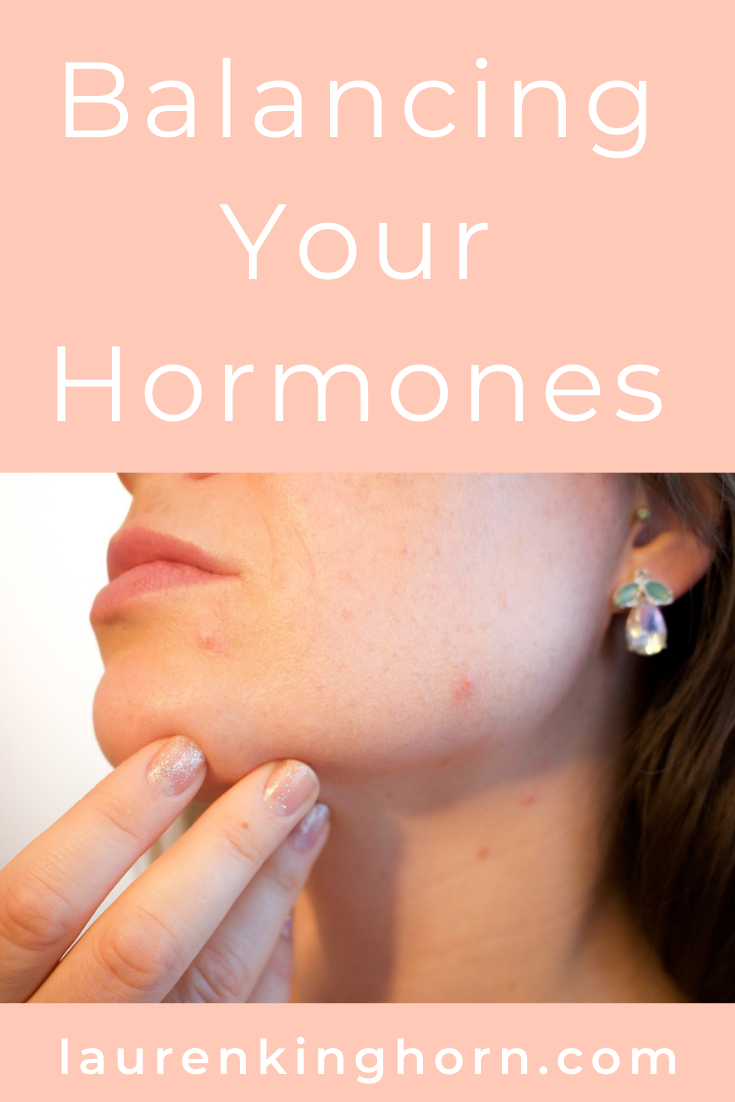Our hormones are quickly blamed for any kind of mood swing or change. We blame our hormones when we’re feeling off, when we’re bloated, or when we’re not looking our best. Sometimes, it seems like we’re blaming hormones for everything without really knowing what is causing our moods.
But, in truth, we’re often right. Even relatively small changes to our hormone levels can leave us facing many different symptoms. Let’s take a more in-depth look at what our hormones are and what they do. As well as some of the things that you can do to help keep yours in check.
What Are Hormones?
 In scientific terms, your hormones are signalling molecules, produced by glands that travel through your bloodstream to your organs, to regulate their behaviour.
In scientific terms, your hormones are signalling molecules, produced by glands that travel through your bloodstream to your organs, to regulate their behaviour.
We’ve got many different kinds of hormones, all carrying different messages to different parts of our bodies. Because there are so many different kinds, travelling everywhere in our bodies, they have tremendous power.
Your hormones regulate
- growth
- mood
- sexual function
- reproduction
- metabolism
- as well as organ function
That’s why they are so incredibly important, and their delicate balance means that it’s exceptionally easy for a small change to have a significant impact on how we look and feel.
How Do I Know If My Hormones Are Out of Balance?
Some hormone imbalances can create severe conditions with apparent symptoms.
When your thyroid gland produces too much hormone or is overactive, it is called hyperthyroidism.
Symptoms can include
- an enlarged gland
- an inability to handle the heat
- rapid heartbeat
- irritability
- weight loss
- and muscle tremors, among other things
On the other hand, hypothyroidism is when your thyroid doesn’t produce enough hormone. This can cause
- dry, irritated skin,
- a hoarse voice
- weight gain
- forgetfulness
- and fatigue
Less serious imbalances can cause tiredness, mood swings, irregular menstrual cycles, weight gain or loss, spots and oily skin, dry skin, and muscle fatigue. Basically, anything that isn’t quite right, but doesn’t have an obvious cause, might be the result of a hormone imbalance. Here are some of the things that you can do to keep that balance in check.
Dietary Changes
Your diet has an enormous impact on how your body works. If you want to bring balance to your hormones, look at making some healthy changes.
Try to avoid processed foods, eating fresh instead. Carbs aren’t bad, as long as you eat the right ones, sticking to complex carbs like brown rice, pasta and bread, which can aid your digestion.
You should also try to eat the right fats. Fat isn’t unhealthy, nor does it make you fat. Fat in your diet is essential to healthy bodily function.
Avoid refined sugars, but fats like those in olive oil and dairy can be good for you and your hormones. Some of the things that you need in your diet to promote good hormonal balance and where you can find them include:
– Iodine, found in fish and eggs
– Zinc, from meat, whole grains and nuts
– Vitamin E, which is in seeds, nuts and olive oil
– Vitamin B2, from eggs and rice
– Vitamin A, in eggs, citrus fruits and carrots, and oily fish
– Vitamin B3, from meat and fish
– Vitamin B6, from whole grains, chicken, vegetables and beans
– Vitamin C, from citrus fruit and green vegetables
Protein is also incredibly important for your hormonal balance.
Protein provides amino acids, which your body doesn’t produce on its own. These acids help to maintain healthy bones, muscles and skin. It’s also thought that protein controls the hormones regulating appetite. It stimulates the production of hormones that make you feel full and reduces levels of ghrelin which makes you feel hungry. This is why low-fat diets are often high in protein.
Exercise
When our bodies are working well, the insulin allows our cells to take sugar and amino acids from our bloodstream — using them to create energy and maintain muscle. Too much insulin, however, can lead to cancer, diabetes, high blood pressure and other conditions.
That’s why exercise is so vital to our hormones. Physical activity reduces the levels of insulin in our bodies, as well as increasing our sensitivity to the insulin that we have got so that we don’t need as much.
Exercise can also boost levels of some of the hormones that naturally decrease as we age, helping you to look and feel younger for longer.
Contraception
Anytime you put something hormonal into your body; you alter your balance. Sometimes, this is a good thing. Some forms of contraception can help to restore balance. Others, like IUD contraception, contain little to no hormone. It’s often about finding the method that suits your body and your natural levels. Keep an eye on any side effects and monitor changes.
Accept Normal Hormonal Changes
Our hormone levels change all of the time. Women especially find that their levels vary enormously throughout the month. While exercise and diet can help you to create balance, it’s also important that you accept these changes and learn how to manage them. Perhaps by getting some extra exercise to boost your mood, or rest to reduce fatigue.
Learn How to Manage Your Stress Levels
Stress has a significant effect on our hormone balance, and on two hormones in particular. These are adrenaline and cortisol.
Cortisol is the hormone that helps you to manage stress. Once, it was released in response to an attack or the presence of predators, our bodies way to regulate the effects of fear. Today, its release is usually triggered by our busy lives or frightening situations. While predators were rare, stress is often constant, meaning our cortisol levels remain elevated. This can lead to obesity, as we consume more calories to combat the effects.
Adrenaline is also known as the “fight or flight” hormone. Your body gives you a surge of energy when it thinks you need it, to help you manage stressful situations.
Too much adrenaline can lead to high blood pressure, rapid heartbeat, and anxiety.
Find ways to manage your stress, to keep these hormones in check. Meditation, yoga and laughter can all help.
Which ways have you found work best to balance your hormone levels?
Featured Image Credit: CCO License – Pixabay
Pin Image Credit: CCO License – Pixabay

